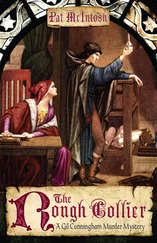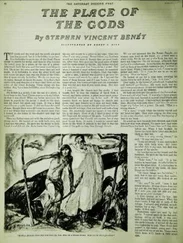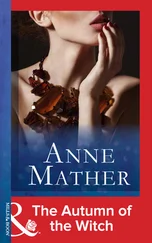“That’s amazing. But it can’t be intact.” I thought of the Mayan temples still being discovered under the heavy shrouds of jungle in Mexico. That would be impossible here. All the historical buildings were known.
Tomas walked over and lifted up the Bible. “You’re right, if the temple was above ground.”
“How did you find it? What does it contain?”
He fanned through some pages. “That’s what I’m about to tell you. Ah! Here it is. Read Nahum’s text again. In chapter two he describes the actual battle, and then suddenly we’re sideswiped by verse 2:10. It’s totally out of place. ‘Take ye the spoil of silver, take the spoil of gold; for there is no end of the store, rich with all precious vessels.’”
“You’re saying Nahum wanted the verse about plunder to stand out,” I replied.
“That’s right. Where is the temple? Let’s turn to another passage: ‘Where is the den of lions, which was the feeding-place of the young lions, where the lion and the lioness walked, and the lion’s whelp, and none made them afraid? / The lion did tear in pieces enough for his whelps, and strangled for his lionesses, and filled his caves with prey, and his dens with ravin.’”
He checked to make sure I was taking all this in, boyish enthusiasm written all over his face. “The lion’s a key with a double meaning. It represents the King of Assyria but was also closely associated with the goddess. Hence the lioness. Nahum is reinforcing his message to seek out Ishtar’s temple.
“This is a place where the lions walk unafraid. So it’s concealed. And a few lines further down, he mentions a cave. Nahum is telling us the temple location is unusual. We’re looking for a secret spot near or within a cave.”
The prospect of a find like this cracked my permanently black mood. “That’s phenomenal. Are you sure you know what you have? I’ve never heard of Mesopotamians putting temples underground.”
“We do know of some, even though the actual temple structures have long since deteriorated. One site in particular, devoted to the moon god Sîn, is located in a cave called the Shwetha D’Ganowe, the sleeping bed of the robbers.”
I thought about what he’d said. Aššurbanipal knew his empire was failing. If the king had something he regarded as excessively valuable, it made sense that he’d choose a location next to impossible to find.
Tomas held up a finger. “One more consideration. After the tirade against Ishtar, Nahum compares Nineveh to No-Amon. That is the Egyptian Thebes, also sacked by King Aššurbanipal and plundered for its treasure.”
“That’s what you found then? The lost treasures of Thebes?” Sensational headlines would result from something of that magnitude. “But I thought it came from Anatolia.”
“I meant only that Nahum says Nineveh has been destroyed just like Thebes. But again there’s a double meaning. The Dead Sea Scroll fragment for the Book of Nahum actually drops the ‘No’ and simply refers to ‘Amon.’ Amon is Amun, a chief Egyptian god. His name means to conceal . He’s associated with hidden things.
“It’s clear that Nahum or his trusted friends among the community of deportees in Nineveh successfully smuggled his work to Judah, or we wouldn’t have the Old Testament book. There was likely a secondary copy on a papyrus scroll or parchment that could have been transported with relative ease.
“In the dying days of the Assyrian empire, the entire area was very unstable and dangerous. The Hebrew king Josiah was murdered at Megiddo by the Egyptians. Not long after that Judah plunged into chaos and was eventually conquered by the Babylonians. Under those circumstances, mounting a caravan with an armed escort to travel hundreds of miles to Assyria would have been impossible. So the Judeans may well have correctly interpreted the location of Ishtar’s temple but historical events interceded, preventing them from reaching their quarry.”
“Where is it?”
“Near a village not far away.” Tomas allowed himself a broad smile. “So. Would you like to see Nahum’s secret?”
Thirty-five

“Why are you willing to share it with me?”
“Your curiosity is dangerous and you have a tenacious side. Eventually you’d find it hard to accept you’d never seen it and might try to seek us out again. I don’t want that to happen.”
“That’s still a startling change of heart.”
“It’s safe from you now.” He reached for a plastic bag. My credit card, passport, and Ward’s roll of bills tumbled onto the table.
“How did you get these?”
“We have contacts. They gave Ward’s room a sweep.” His next words were an almost equal surprise. “I’m arranging to get you out of Iraq. You’ll be taken to the Palestine Hotel, where someone will meet you and make sure you leave the city unharmed.”
And why, I wondered again, when the man had betrayed me, was he even bothering to help me? I grabbed the card, passport, and money, stuffing them into my pants pockets. “Where’s the Victory sculpture?”
“It will be returned to the museum.” “Ward would never have left it in his room.”
“We have good networks here. That should be obvious by now.”
Glad though I was at the prospect of returning home, I’d developed an attachment to the city. “I’ll miss Baghdad. I understand now why Samuel loved it so much.”
“You’re not in Baghdad. You’re in Mosul, in northern Iraq, not far from the site of Nineveh. This is our home. You were unconscious for a whole day—the time it took us to bring you here. If you’d been in Baghdad, the military presence, aircraft overhead, gunfire, and explosions would have been much greater. Come now, if you want to see what we’ve found.”

Mazare, his face still a rash of cuts, drove; Tomas sat beside him and a third man got in the back with me.
“Before we go to the temple, we’re taking a short detour,” Tomas said.
“Why’s that?”
“When we first met, you questioned whether the prophet Nahum lived in Assyria. I’ll prove it to you.”
He could read the skepticism in my voice. “And how are you going to pull that off?”
In answer, he gave a self-satisfied smile. “You’ll see.”
Half an hour later we entered a town nestled against a small mountain. “The village of Alqosh,” Tomas said.
“I thought we’d be going somewhere near the Nineveh site.”
“A thriving Jewish community existed here for thousands of years. Originally, Hebrew people the Assyrian kings had forced into exile. It was Nahum’s community, among them his confidants, the ones he hoped would lead the caravan from Judah to Ashurbanipal’s treasure.”
We entered the town and negotiated successively smaller streets, eventually bumping down a narrow lane enclosed on either side by buildings. We pulled up near an ancient building constructed of masonry and small boulders similar to the honey-colored stone in the rest of the town. The structure looked so old you’d almost think it had grown out of the underlying rock. Deep arches along one side formed a sort of rough cloister; rectangular holes in the walls had once been windows. One side had caved in. “When our country is stable again our State Board of Antiquities will protect this site and restore it,” Tomas stated with a clear note of pride.
Tomas went next door and knocked. A man greeted him and handed him something. When he returned he held up a ring of keys. “This is an ancient synagogue,” he said. “The last Jewish people left in 1948, and their rabbi entrusted the keys to their next-door neighbor. The family has acted as caretakers ever since.”
Читать дальше














